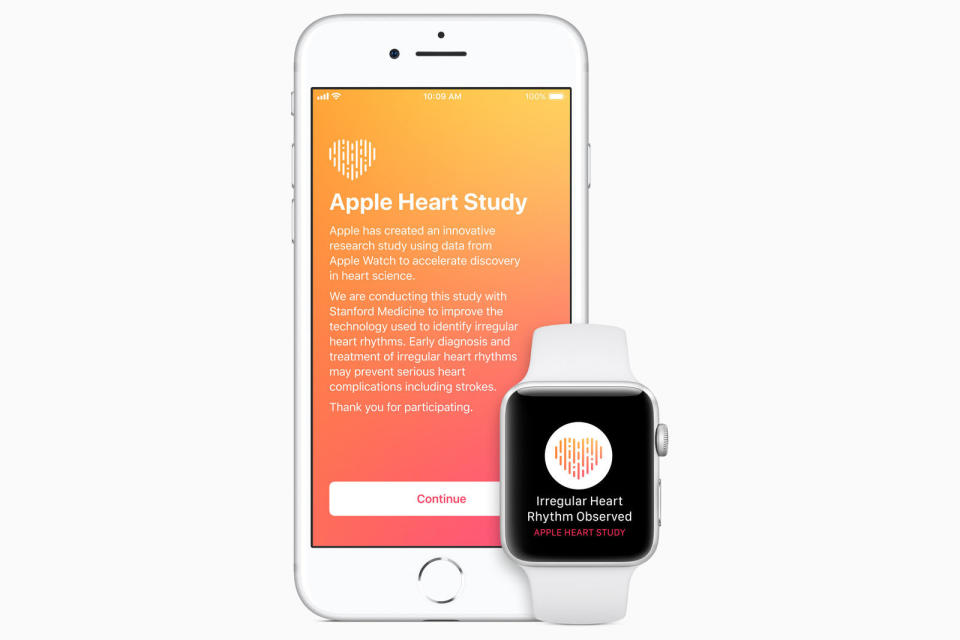Stanford publishes its massive Apple Watch heart-rate study
The paper is published in the 'New England Journal of Medicine.'
The Stanford researchers that conducted Apple's Heart Study have published their paper in the New England Journal of Medicine. They previously released the study's preliminary results, but you can now read the full paper if you're curious about how they were able to come to the conclusion that, yes, the Apple Watch can detect atrial fibrillation. People who have the condition have irregular heartbeat and could suffer from stroke, blood clots and heart failure.
The study, which was sponsored by Apple and started back in 2017, garnered enough interest to enlist 400,000 volunteers with access to an iPhone and a Watch Series 1, 2 or 3. Apple's newer smartwatches weren't included, because it was before their time. The Heart Study app monitored the participants' heart rhythm to look for the presence of an irregular pulse. Researchers sent electrocardiography patches to the participants who did register irregular heartbeat, so they could get a week's worth of data and confirm if they have atrial fibrillation.
In all, only 0.5 percent of the participants got notifications about having irregular heartbeat -- a results researchers categorized as a "key finding," since concerns were raised about over-notification. After comparing data from the Watch and the ECG patches they sent out, the researchers found that 34 percent of the participants who received a notification really did have atrial fibrillation. Further, the ECG patches confirmed 84 percent of the atrial fibrillation Apple Watch detected during the patch-monitoring phase. While 34 percent may sound like a small percentage, the researchers said it's not surprising that ECG patches wouldn't detect anything unusual. Atrial fibrillation is an intermittent condition, and the participants only wore the patches for a short period of time.
In addition, the paper notes that 76 percent of those who got an irregular notification contacted a healthcare provider. The researchers say that shows how digital alerts can "enhance engagement with the healthcare system overall." Marco Perez, the study's lead author, said in a statement:
"The performance and accuracy we observed in this study provides important information as we seek to understand the potential impact of wearable technology on the health system. What the Apple Heart Study shows us is that atrial fibrillation is just the beginning. We can look ahead to other areas of preventive medicine. Further research will help people make more informed health decisions."


